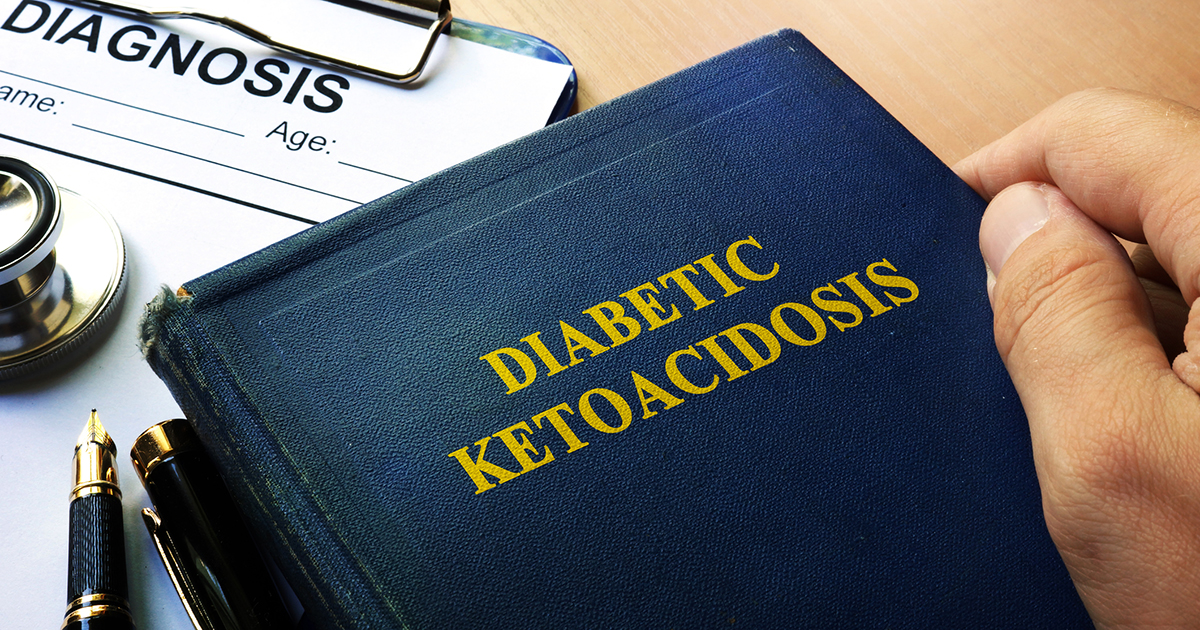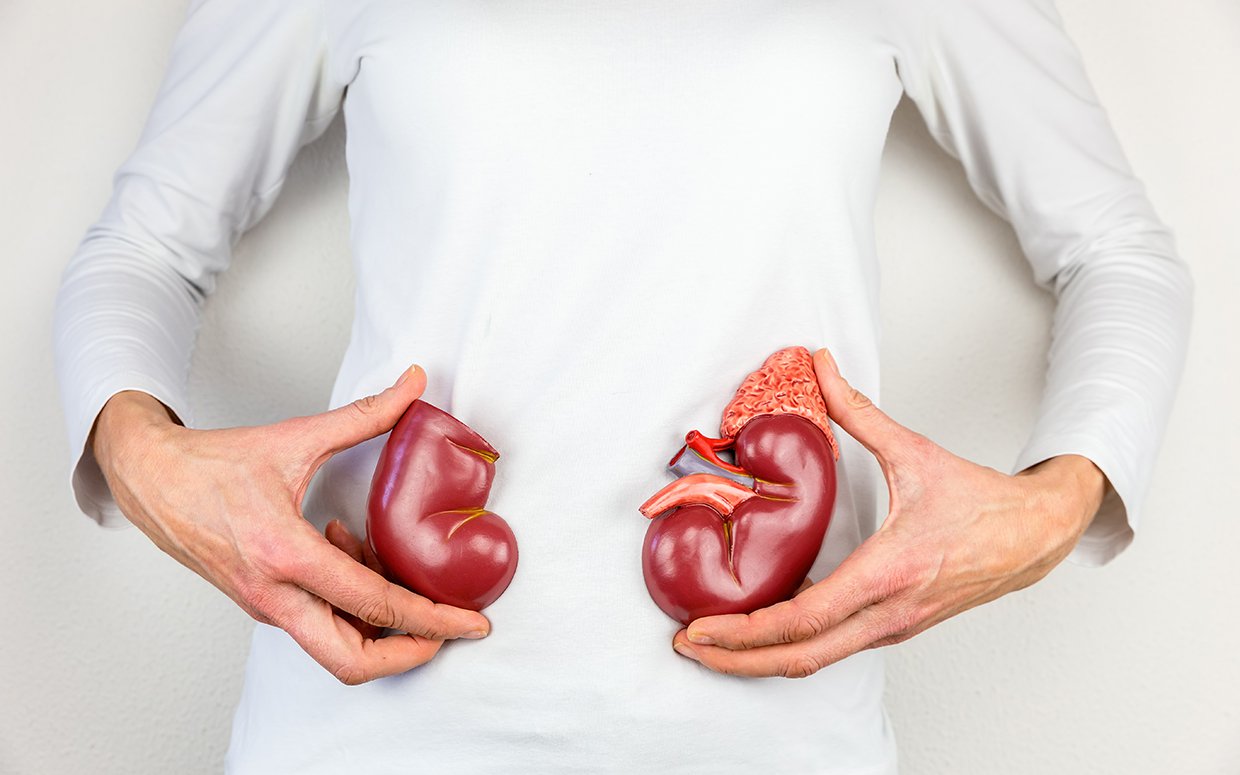What Causes Hypokalemia?
Hypokalemia is a potentially serious condition that occurs when the potassium levels in the blood become too low. Potassium is necessary for the healthy function of an individual's muscle cells and nerves. It's especially essential to helping the heart muscle function. Potassium is an electrolyte controlled by the kidneys, and as the kidneys filter potassium, any excess electrolytes exit the body through urine or sweat. There are several other names for hypokalemia, including low potassium syndrome hypokalemic syndrome, and hypopotassemia syndrome. When hypokalemia is mild, there won't be symptoms. If the potassium levels are low enough, though, patients may experience abnormal heart rhythms and severe weakness in the muscles. Treatment for the condition often depends on the underlying cause. In the majority of cases, symptoms resolve following treatment.
Get familiar with the causes of hypokalemia now.
Diabetic Ketoacidosis

Diabetic ketoacidosis is a potentially life-threatening complication that can occur with type 1 diabetes. While it can sometimes occur in type 2 diabetes patients, it's much rarer. Diabetic ketoacidosis occurs when the levels of sugar in the blood become too high, which leads ketones to build up. Ketones are acidic substances that can reach dangerous levels. Ketoacidosis is different from ketosis, which is a harmless condition that occurs when an individual's body begins burning fat due to a low-carb diet. Meanwhile, ketoacidosis is much more harmful. Diabetic ketoacidosis can only occur if an individual's body doesn't have enough insulin to process the glucose levels in their blood. Because those with type 2 diabetes don't usually have such low insulin levels, diabetic ketoacidosis is more rarely observed in them. However, diabetic ketoacidosis can sometimes be the first sign indicating an individual has developed or been born with type 1 diabetes. If an individual thinks they may have diabetic ketoacidosis, they should seek emergency medical treatment immediately. Left untreated, this condition can progress to a coma or death. Hypokalemia is just one of many concerning symptoms. Individuals with diabetic ketoacidosis may have confusion, fatigue, frequent urination, unusual thirst, high ketone levels in their urine, and high blood sugar.
Read more about the causes of hypokalemia now.
Diuretics

Diuretics, which help decrease the amount of water in an individual's body, have the potential to decrease their blood's potassium levels. Some diuretics are prescribed in pill form, while others are available over-the-counter in other forms. Caffeine, which many individuals ingest in coffee and soda, is a diuretic. Too many caffeinated beverages can lead individuals to become dehydrated if they don't have them with water. When used medically, diuretics typically treat high blood pressure, since by eliminating water and sodium through urine, an individual's overall blood pressure lowers. Not all diuretics affect potassium, but some do cause patients to eliminate potassium, which can cause them to develop hypokalemia, especially if individuals don't have enough potassium in their diet. There are some diuretics specifically developed to spare potassium so patients don't develop low potassium. Potassium-sparing diuretics include triamterene eplerenone and spironolactone. Some high blood pressure medications can also cause an individual's potassium to increase. Doctors may combine one of these with a diuretic if there's an issue with their patient's potassium. ACE inhibitors, renin inhibitors, and angiotensin II receptor blockers can all lead to a potassium increase.
Uncover details on more causes of hypokalemia now.
Excessive Use Of Laxatives

The excessive use of laxatives can cause an individual's potassium levels to drop. Excessive laxatives also have the potential to cause other serious health issues. Laxative abuse occurs commonly with certain eating disorders. Some individuals use laxatives following a food binge because they want the laxatives to flush out food waste before they're able to absorb the calories. Unfortunately, laxatives don't actually work like that. They only remove waste after the calories and nutritional content have been processed by the digestive system. When individuals lose weight after using laxatives, what they lost doesn't contain much caloric content, food, or fat. Instead, laxatives purge the body of fiber, colon waste, electrolytes, minerals, and water, which can lead individuals to become seriously dehydrated, and the weight comes back as soon as they rehydrate. Individuals who refuse to rehydrate following laxative abuse may become so dehydrated that they develop life-threatening symptoms. In addition to causing hypokalemia due to low potassium, individuals overusing laxatives may also experience low phosphorous, magnesium, and sodium.
Keep reading to learn more about the different causes of hypokalemia now.
Chronic Kidney Disease

Certain types of chronic kidney disease can lead to hypokalemia. In most cases, potassium levels are more likely to become too high than too low because the kidneys aren't able to filter it as well as they should. However, some kidney diseases can cause an individual's potassium levels to lower. Bartter syndrome is a rare kidney disorder that occurs due to genetics, and it causes potassium and salt levels to become imbalanced. Bartter syndrome consists of several related conditions that cause substance imbalances. It's usually apparent very quickly, and in some cases, the syndrome is apparent before birth because of the increase in fluid surrounding the fetus. Another rare genetic kidney disorder is Gitelman syndrome, which causes the ions throughout the body to become imbalanced. Gitelman syndrome tends to affect calcium, magnesium, and potassium ions. This syndrome doesn't typically present with symptoms until late childhood or further in adolescence.
Get the details on more reasons for low potassium now.
Diarrhea And Vomiting

Diarrhea and vomiting can both lead to potassium loss because individuals lose electrolytes and minerals through their digestive tract. It typically takes a lot of vomiting or diarrhea to cause significant enough potassium loss to develop symptoms. Multiple conditions can cause both vomiting and diarrhea, and many are mild and will resolve on their own. Most bacterial and viral infections that cause these symptoms will resolve in a few days or weeks as long as affected individuals rest properly. If an individual's symptoms are serious enough that they're causing consistent dehydration, electrolyte imbalances, or pain, they should talk to a doctor to make sure there isn't an underlying condition. Some underlying conditions can cause chronic or persistent diarrhea, but this can typically be managed by using the right medications.